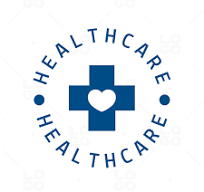Introduction:
In the rapidly evolving landscape of health technology, ensuring compliance with the Health Insurance Portability and Accountability Act (HIPAA) is paramount. SaaS lawyers, specializing in Software as a Service (SaaS) legalities, play a crucial role in guiding health tech companies through the intricate maze of HIPAA regulations. This article explores the intersection of HIPAA, health tech, and the expertise of SaaS attorneys to provide comprehensive guidance for navigating compliance challenges.
Understanding HIPAA Compliance in Health Tech:
Health tech companies, ranging from telemedicine platforms to electronic health record systems, handle sensitive patient information. HIPAA sets the standard for protecting this data, mandating strict protocols for its collection, storage, and transmission.
SaaS Lawyers: Your Compliance Partners:
SaaS lawyers possess specialized knowledge in both SaaS legal frameworks and healthcare regulations like HIPAA. Their expertise enables health tech companies to develop robust compliance strategies tailored to their unique SaaS models.
FAQs:
Q1: Why is HIPAA compliance important for health tech companies? A1: HIPAA compliance ensures the security and privacy of patient information, fostering trust among users and avoiding costly penalties for non-compliance.
Q2: How can SaaS lawyers assist in HIPAA compliance? A2: SaaS lawyers offer legal counsel to help health tech companies understand their HIPAA obligations, draft compliant contracts and policies, and navigate audits and investigations.
Q3: What are common HIPAA compliance challenges faced by health tech startups? A3: Challenges include understanding HIPAA requirements, implementing necessary safeguards, and adapting to evolving regulations amidst rapid technological advancements.
Conclusion:
Navigating HIPAA compliance in the realm of health tech requires a nuanced understanding of both healthcare regulations and SaaS legalities. SaaS lawyers serve as invaluable partners, guiding companies through the complexities of HIPAA compliance and ensuring that their innovations in health technology prioritize the privacy and security of patient data. Embracing this partnership is essential for driving innovation while safeguarding the integrity of healthcare systems in the digital age.
